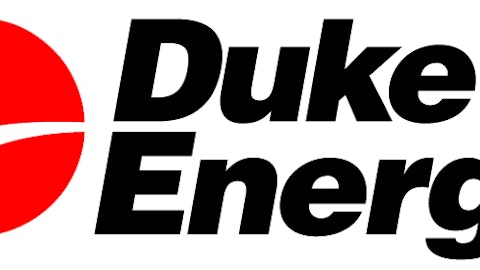
Buffett put his money where his mouth is. In a $5.6 billion, all-cash deal, Berkshire Hathaway Inc. (NYSE:BRK.A) announced that it would acquire NV Energy, Inc. (NYSE:NVE) for its MidAmerican Energy subsidiary.
Buffett’s changing style
The old Warren Buffett would have never purchased a boring, old utility company. That’s something that his mentor, Benjamin Graham would do. Utilities are too safe, too easily predicted, and generate low returns on invested capital that are restricted by state regulators.
Buffett previously had a preference for companies that could generate high returns on invested capital. Companies that needed only a modest amount of new investment to grow earnings. In his portfolio were names like American Express Company (NYSE:AXP), The Coca-Cola Company (NYSE:KO), and Wells Fargo & Co (NYSE:WFC), which generate impressive double-digit returns on incremental cash investments.
Only a few companies can generate above-economic returns on capital forever, though. Buffett’s simply running out of ideas, which one could see in his billion-dollar elephant hunts for companies like H.J. Heinz Company (NYSE:HNZ), NV Energy, Inc. (NYSE:NVE), and Burlington Northern Santa Fe, LLC (NYSE:BNI).
Buffett’s few remaining options
Buffett can only find so many great ideas – and with a growing insurance float worth nearly $100 billion to Berkshire Hathaway Inc. (NYSE:BRK.A), he needs to start coming up with more and more of them. Berkshire Hathaway Inc. (NYSE:BRK.A) can make only a few big investments with its insurance float. It could invest in corporate debt and earn sub-3% yields on 10-year securities, or it could instead go long in capital-intensive businesses ranging from railroads to utilities.
Given the options available, billion-dollar investments in companies like NV Energy, Inc. (NYSE:NVE) (which earns under 10% returns on shareholder equity), a sub-10% return on a stable utility still looks much better than bond yields measured in the basis points.
Plus, Berkshire Hathaway Inc. (NYSE:BRK.A) doesn’t need extraordinary returns on its float for the company to generate excess returns. The insurance company’s free float is money that costs Berkshire absolutely nothing. The insurance businesses that generate the float do so while posting impressive underwriting profits. For Berkshire, the cost of capital is as close as zero as you can get.
How to follow Buffett’s buying spree the right way
Warren Buffett’s long-term track record is remarkable, but following him isn’t necessarily the best strategy. Whereas Buffett can afford to earn single digit returns on his big energy-related acquisitions, most investors and savers need higher total returns. Buffett’s railroads nor utility investments will never offer extreme equity-like growth private investors need.
Of course, Berkshire Hathaway Inc. (NYSE:BRK.A) also has a much lower cost of capital than you or I. Berkshire effectively borrows billions of dollars from its insurance subsidiaries at zero. I don’t know about you, but I certainly cannot raise billions of dollars to finance utility acquisitions with other people’s money with absolutely zero interest costs.
Here’s how you can follow safely and intelligently:
- Move fixed-income holdings to utilities – Utilities are a sound long-term bet, but they should be compared to fixed-income investments like bonds and preferred shares, not common stocks. Compared to fixed-income investments, the utility sector looks like a much more compelling value with substantially more upside. The Utilities SPDR (NYSEMKT: XLU) offers a yield of 3.84%, an impressive yield compared to the returns on 5- and 10-year investment-grade debt securities. Investors should not expect this portion of their portfolio to beat the returns on common stocks; however, utilities should deliver a combination of current dividends and dividend growth that provides income well above bond yields. Not to mention that utilities currently trade at a slightly lower earnings multiple than the broader S&P 500 index.
- Take another look at insurance – Insurance is an excellent business, and Berkshire Hathaway Inc. (NYSE:BRK.A) is proof of that fact. Insurance companies are trading at depressed multiples despite their leverage to investment returns. One of the best picks in the space is The Chubb Corporation (NYSE:CB) , which is known as a quality underwriter for its low combined ratio (the cost of business expressed as a ratio of percentage of premiums received), and for its excellent capital allocation. Trading at under 14 times last years’ earnings, the company trades at a discount to the S&P 500 despite its history of shareholder value creation. A dividend yield of 2% is in line with market averages. Moreover, the company excels at repurchasing its own stock, buying back 25% of its shares in just the past five years.
Investors shouldn’t follow Buffett blindly. Utility stocks aren’t priced for market-beating performance, but they should exceed bonds over the long haul. Likewise, Berkshire’s impressive insurance model may be fantastic, but other insurance companies like The The Chubb Corporation (NYSE:CB) orporation are still small enough to find good places to put their float.
These two investments offer a way to follow Buffett without sacrificing long-term returns.
Jordan Wathen has no position in any stocks mentioned. The Motley Fool recommends Berkshire Hathaway Inc. (NYSE:BRK.A). The Motley Fool owns shares of Berkshire Hathaway.
The article Buffett Puts His Money Where His Mouth Is originally appeared on Fool.com.
Jordan is a member of The Motley Fool Blog Network — entries represent the personal opinion of the blogger and are not formally edited.
Copyright © 1995 – 2013 The Motley Fool, LLC. All rights reserved. The Motley Fool has a disclosure policy.





